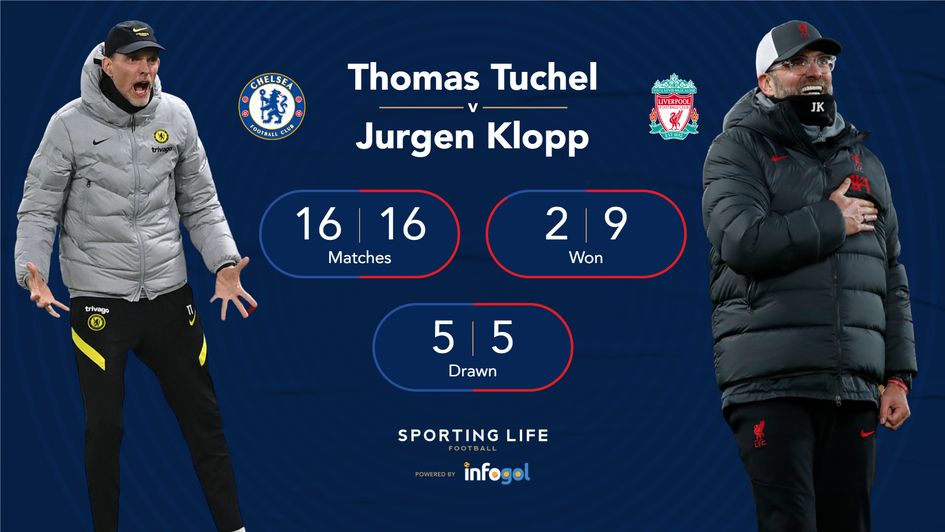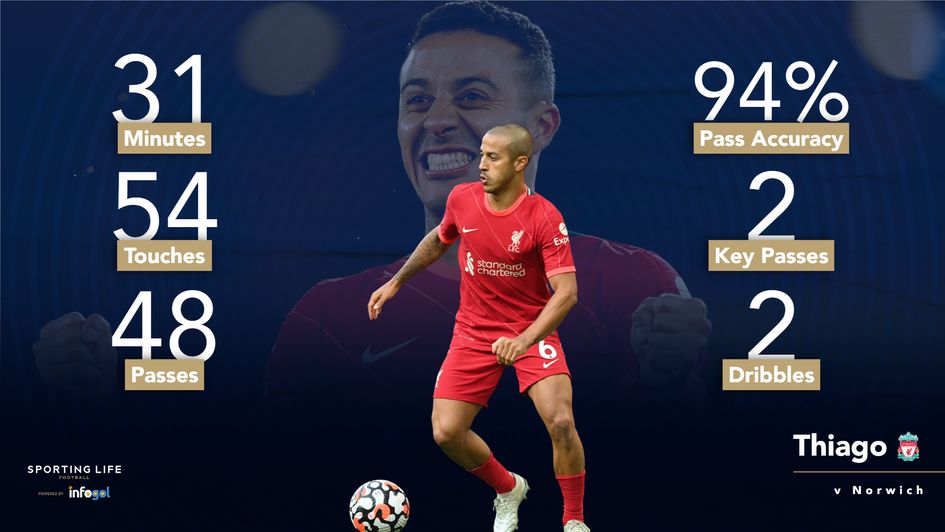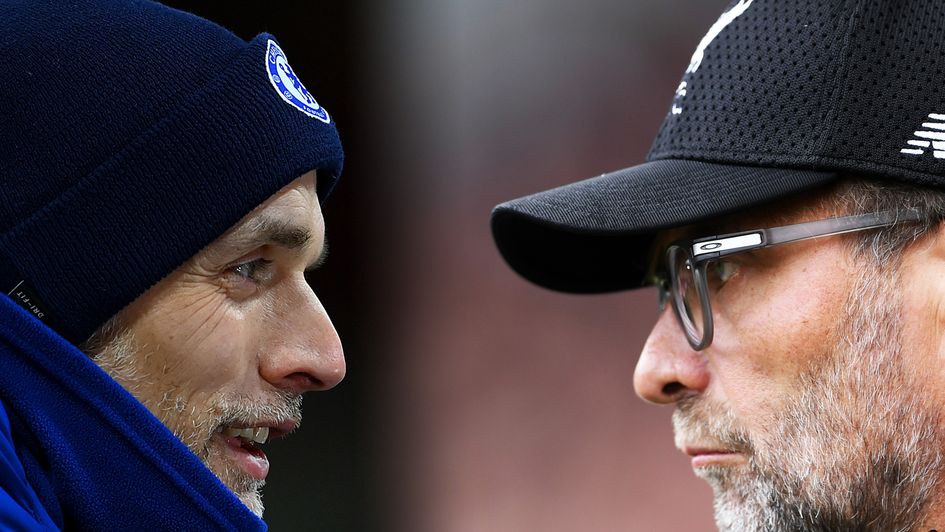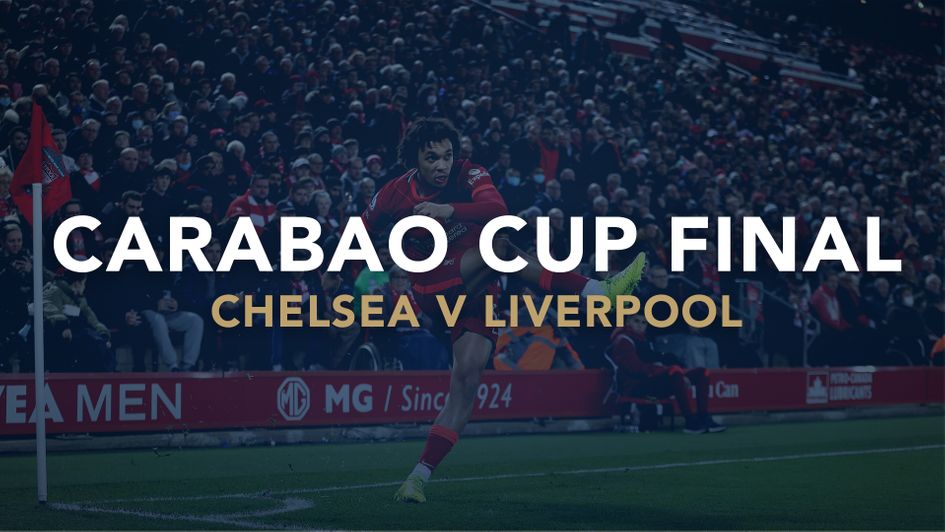The future of the Carabao Cup is eternally under threat, no matter how often it proves its worth.
Discussions about its relevance, and the inevitability it will soon be scrapped, are always ongoing no matter how entertaining the football and how meaningful it is to supporters.
One would hope the acceleration of its demise has had something to do with Manchester City’s recent dominance, having won five of the last six editions, and that consequently a different name on this year’s trophy will be a timely reminder of the EFL Cup’s importance.
There is no doubt Thomas Tuchel and Jurgen Klopp, as well as Chelsea and Liverpool supporters, will arrive at Wembley in buoyant mood and desperate for silveware.
Klopp is yet to win a domestic cup in England while Liverpool have only won one – the League Cup in 2012 - since their FA Cup triumph in 2006. It is about time they delivered on this stage.
As for Chelsea, they have not won anything domestically since 2018 while Tuchel, stuttering this season, could do with a lift.
And from a neutral perspective it should be another excellent game; another highly tactical meeting between two of the great minds of the modern game.

So far in England, Tuchel has denied Klopp on all three occasions. Here’s how he did it, and how the EFL Cup final will shape up on Sunday:
Why Tuchel’s methods work against Klopp
The biggest difference between the two managers is their approach to pressing. Klopp believes in a high defensive line and aggressive pressure at all times, with the hope of pinning the opponent back and winning the ball in dangerous areas of the pitch. Tuchel, however, is happier to drop back into shape, focusing on compression between the lines and – in a midblock – happy to concede territory if he must.
Both managers have the Germanic instinct for sharp vertical football over possession, hoping to take advantage of attacking transitions with urgent passes as progressive and direct as possible. However, their differing attitude to pressing is giving Tuchel the upper hand in their meetings – and giving Chelsea more opportunities to break quickly.
Across their three meetings Chelsea have been happy to sit back, absorbing pressure for periods but breaking as fast as possible through the stretched Liverpool midfield and behind the high defensive line – albeit in different ways on all three occasions.
Inevitably this urgency when the ball is won back creates an end-to-end contest for explosive periods, offering Liverpool a route into an otherwise cagey and claustrophobic match.
How Chelsea have excelled in the past
Although Chelsea have only won one of the three games, drawing the other two, they have arguably been the more coherent side in all of them.
In their first meeting last March, a 1-0 win at Anfield during Liverpool’s most erratic period, Tuchel repeatedly aimed long balls over the top of the defence for Timo Werner to chase.
This forced the hosts to backpedal frantically, gradually unhinging their central midfield as Curtis Jones struggled to cope against N’Golo Kante.
Eventually, the long-ball method paid off as Mason Mount’s winner comes from a searching pass over the top.
For the second, a 1-1 draw defined by Reece James’s early red card, Chelsea happily retreated (a pattern pre-dating the red card, with Tuchel’s side already on 37% possession before James was sent off) and looked to pierce the lines through midfield.
They used Kante and Mount to dribble through the gaps around Fabinho, as Liverpool once again struggled to control things without Thiago Alcantara in the team.
January’s 2-2 draw was the most chaotic of the three but by and large a repeat of the previous meeting. Again Tuchel screamed at his players to quickly release a low pass through the lines and in behind Liverpool’s defence.
Again they were the more threatening in a fairly even game played at an extremely high pace and with very little time on the ball. Again Liverpool missed Thiago as Chelsea counter-attacked menacingly.
Where the final will be won and lost
The one crucial difference, this time, is the return of Thiago.
His elegant possession in the heart of midfield is vital to Klopp maintaining order, and his head-to-head with Kante is likely to be the defining battle at Wembley.

Certainly Liverpool ought to be able to force Chelsea to slow down, leaving them camped in their own half for longer periods of the match.
Injuries to Roberto Firmino and Diogo Jota mean Luis Diaz will start up front, providing another interesting new element to the game that could go in Liverpool’s favour.
He has made a lively, rugged start, and his directness could be vital as Klopp’s side attempt to get through the space between the wing-back and outside centre-back.
The absence of Chelsea’s first choice wing-backs is unlikely to be much of an issue here (unless Marcus Alonso is shown to be vulnerable up against Mohamed Salah), because they will not be expected to join the attack very often.
Instead, as usual Kante and Matteo Kovacic – if fit – will be tasked with surging forward on the ball and feeding Chelsea’s quicker forwards in behind the centre-backs.
Romelu Lukaku was an unused substitute in the 2-0 win over Lille following his infamous seven touches at Crystal Palace last weekend, but his pace and acceleration are theoretically ideal for a game like this.
Then again, Mount will surely play, in order to link the midfield and attacking lines in those crucial – but vanishingly small – transitional moments, while Kai Havertz is in undroppable form and Werner’s pace is even handier than Lukaku’s.
Chelsea frankly look like a better team without the Belgian, whom Tuchel described as being ‘mentally tired’ after the midweek game.
That is most likely how we will all feel after a frantic, breathless, high-quality EFL Cup final on Sunday.








